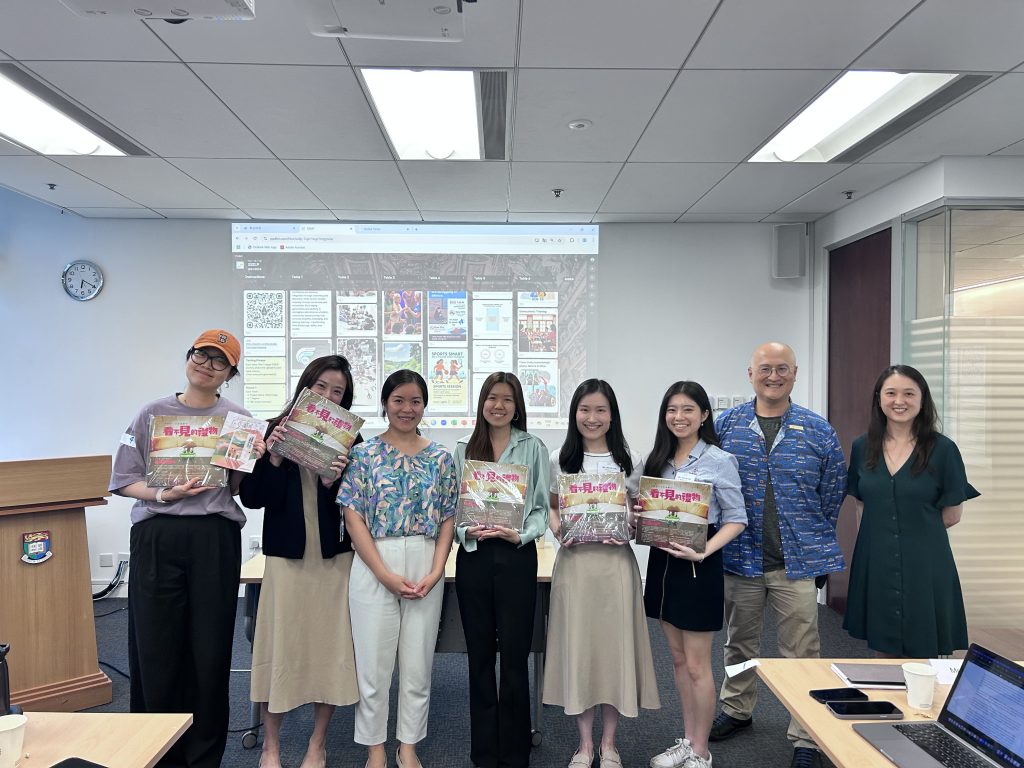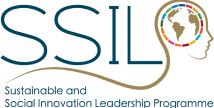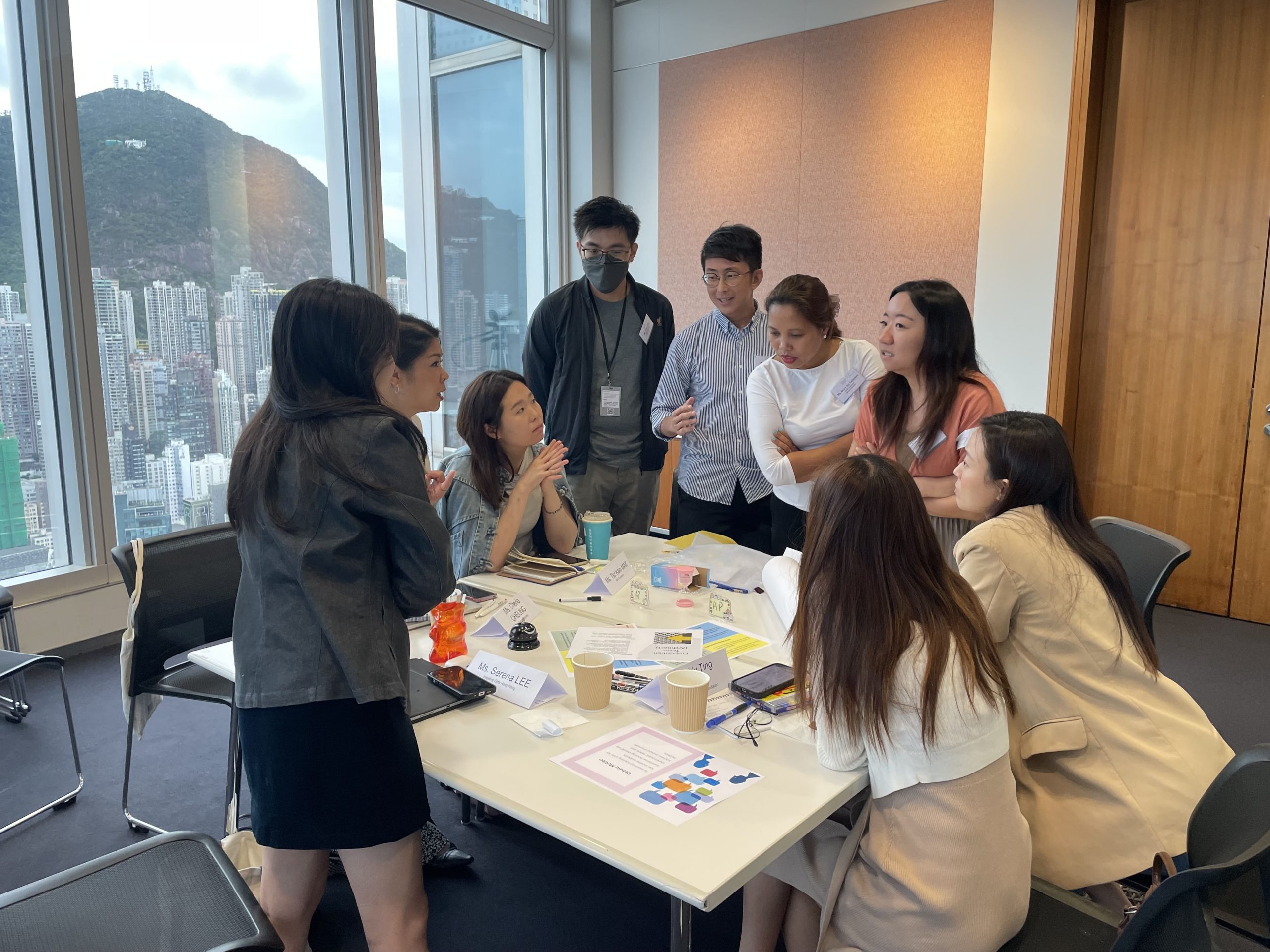Lesson 4 Co-creating Social Impact: Mastering Cross-sector Collaboration
In today’s complex social landscape, single-sector solutions no longer suffice. Effective social change requires strategic partnerships across nonprofit, private, and public sectors. Yet, managing these diverse collaborations presents unique challenges for nonprofit organizations.
SSILP’s fourth session featured Ms. Alice Wan from Connecting Hearts, who guided fellows through the intricacies of cross-sector partnerships. Using a real-world transitional housing project as a case study, fellows explored common collaboration challenges, such as mediating conflicts between architects’ professional expertise and local residents’ needs.
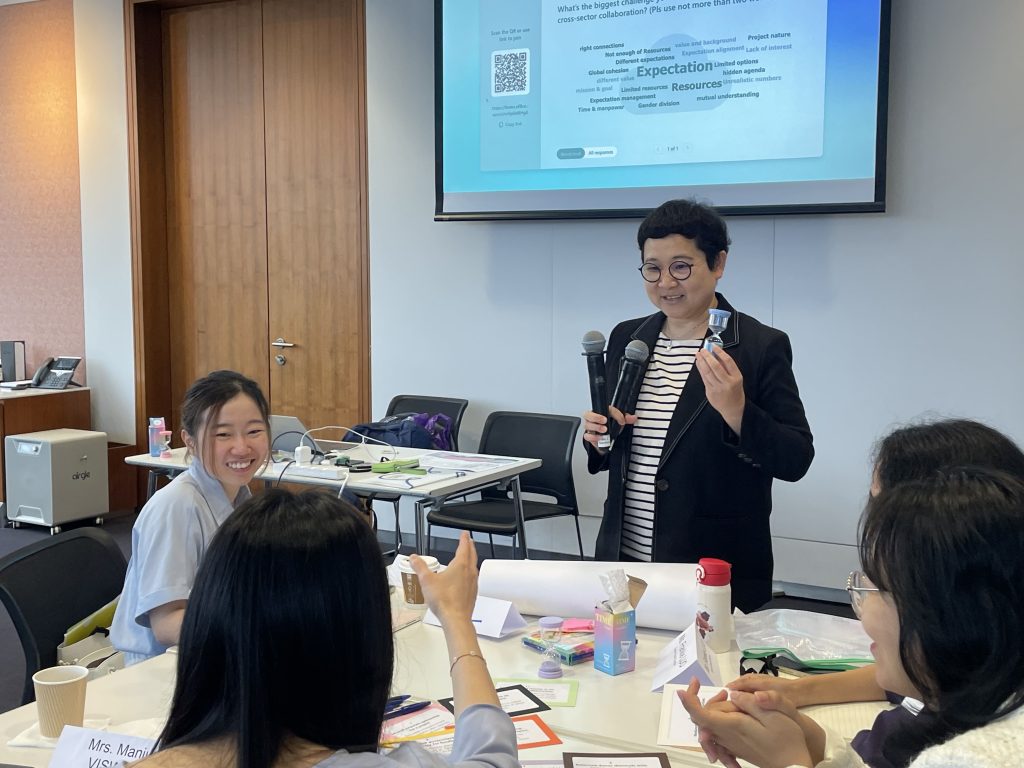
Through dynamic learning methods including role-play exercises and structured debates, fellows stepped into different stakeholders’ shoes to understand varying perspectives. This immersive approach helped participants develop practical strategies for finding middle ground among diverse interests while maintaining project momentum.
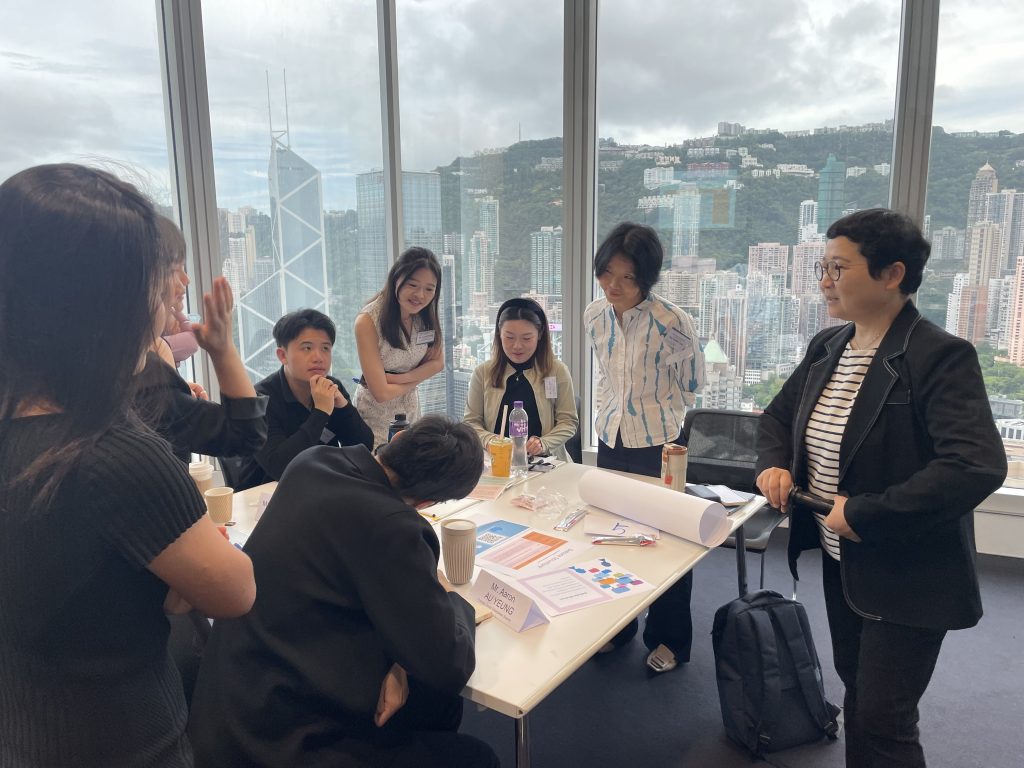
Alice complemented the experiential learning with theoretical frameworks, providing fellows with systematic approaches to partnership management. The session concluded with a revealing look at how the actual case was resolved, offering fellows valuable insights into real-world cross-sector collaboration.
Lesson 5: Fostering Evidence-based Mindset: The Power of Evidence-informed Decision Making
Evidence plays a crucial role in the nonprofit sector, enabling organizations to serve beneficiaries more effectively and helping funders assess their impact. However, many nonprofit practitioners face challenges in designing evidence-based services and measuring their outcomes meaningfully.
In SSILP’s fifth session, Mr. Brian Cheng from Generation Hong Kong and Mr. Lawrence Tsang from D.H. Chan Foundation shared their expertise on evidence-informed decision making. Brian introduced comprehensive frameworks for outcome measurement, including theory of change, logic model, MEL framework, and SRQI, while Lawrence offered valuable insights from a funder’s perspective.
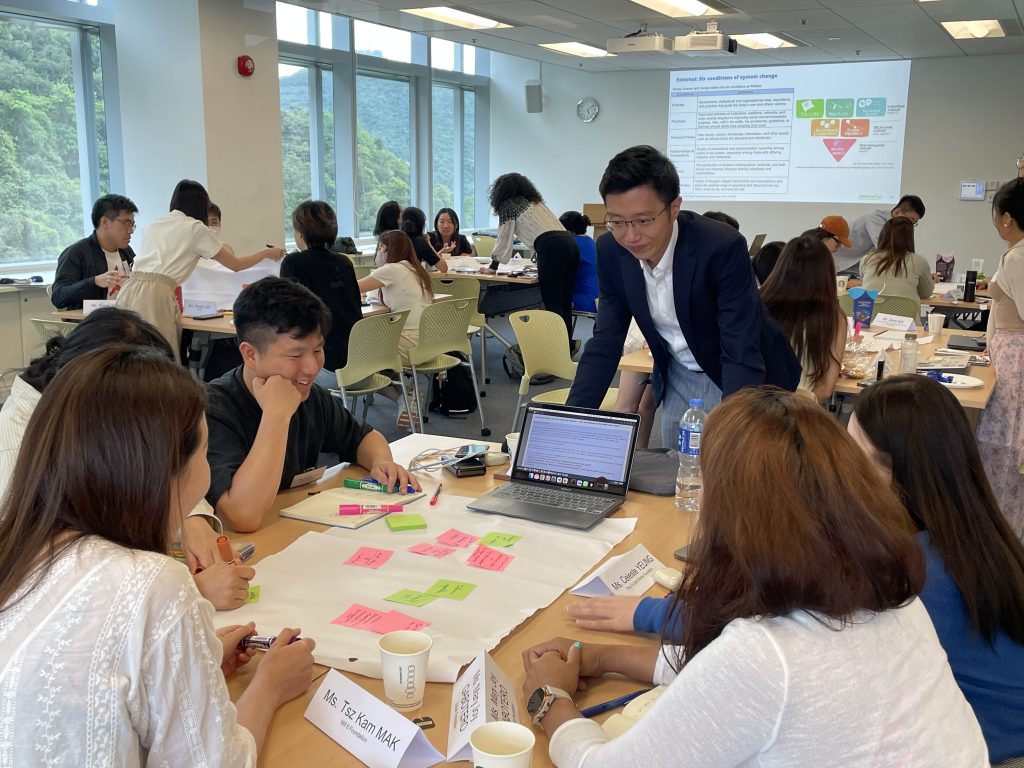
Moving from theory to practice, Brian guided fellows through the six conditions of system change, using a real challenge faced by Generation Hong Kong as a case study. This practical exercise allowed fellows to apply theoretical frameworks to concrete situations, followed by insights into how Generation Hong Kong actually resolved the challenge.
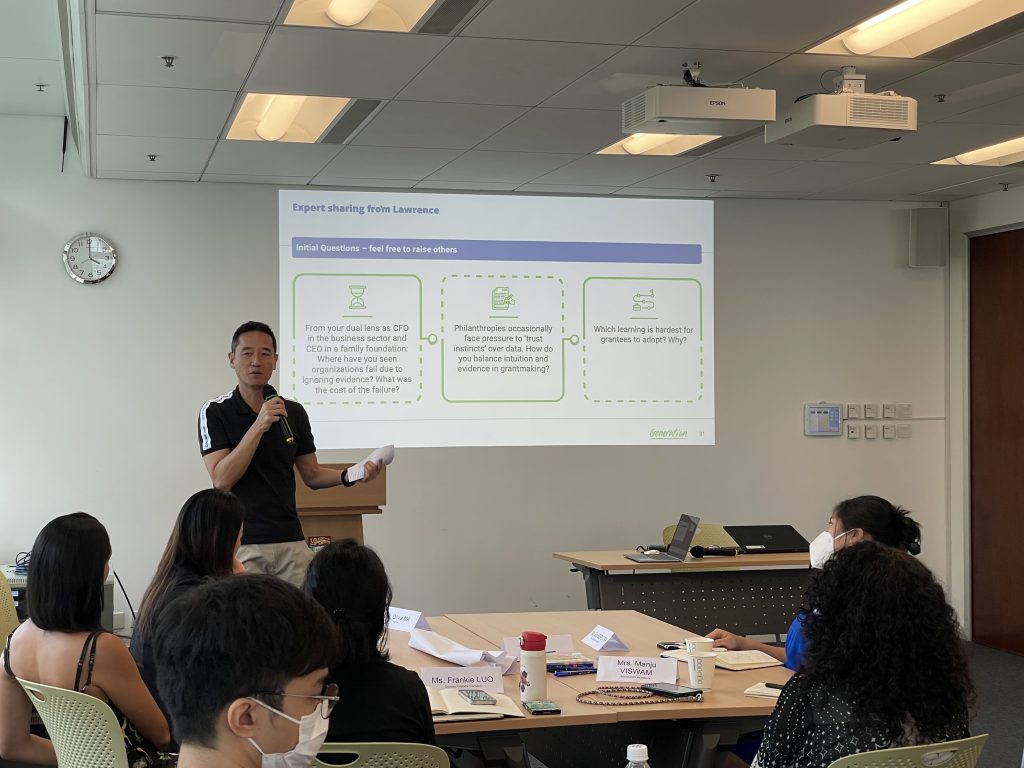
The session concluded with a powerful message from Lawrence: nonprofit organizations possess unique expertise about their programs and beneficiaries. Rather than simply complying with funder requirements, organizations should leverage their knowledge to actively collaborate with funders in co-creating social impact.
Lesson 6: Demonstrate Your Impact: The Art of Grant Writing
Government and private grants play a vital role in supporting nonprofit organizations. Yet, navigating the grant-making process can be challenging, as many nonprofit practitioners wonder how to make their innovative projects stand out to potential funders.
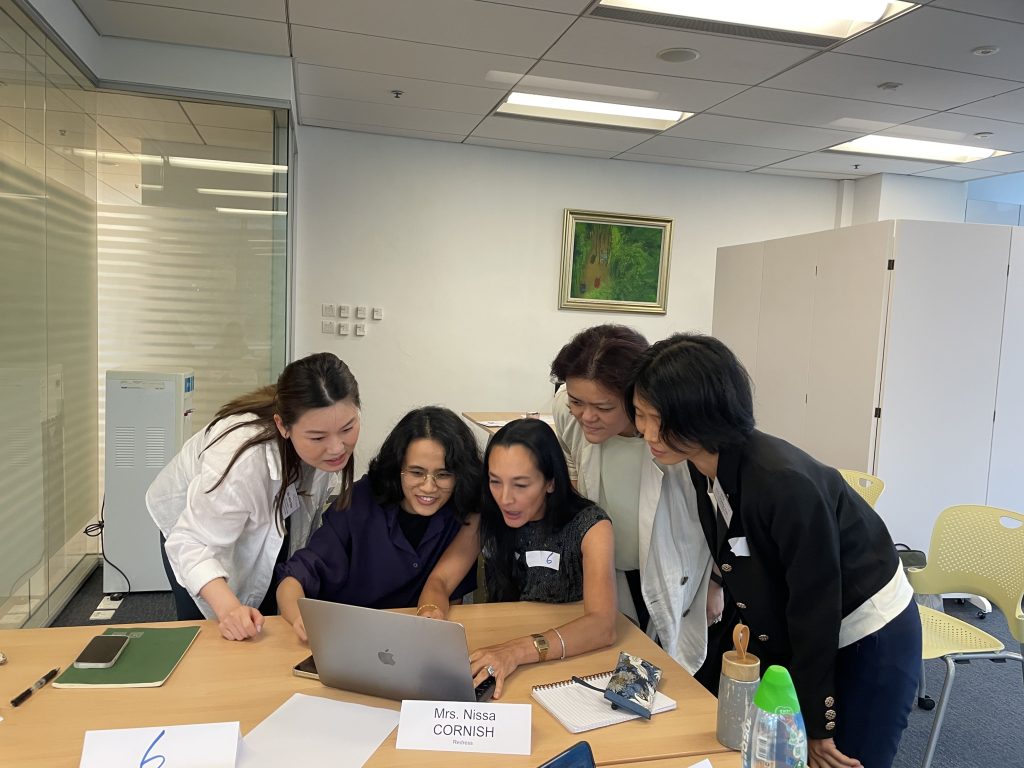
SSILP’s sixth session brought Mr. James Chong from Rolling Books and Ms. Natalie Char from the Swire Group Charitable Trust to share their experiences and perspectives on grant-writing. James shared valuable insights into grant writing, including thoughtful approaches to proposal formatting, alignment with evaluation criteria, and clear articulation of funding purposes. His presentation highlighted the value of understanding grant writing from a funder’s perspective.
